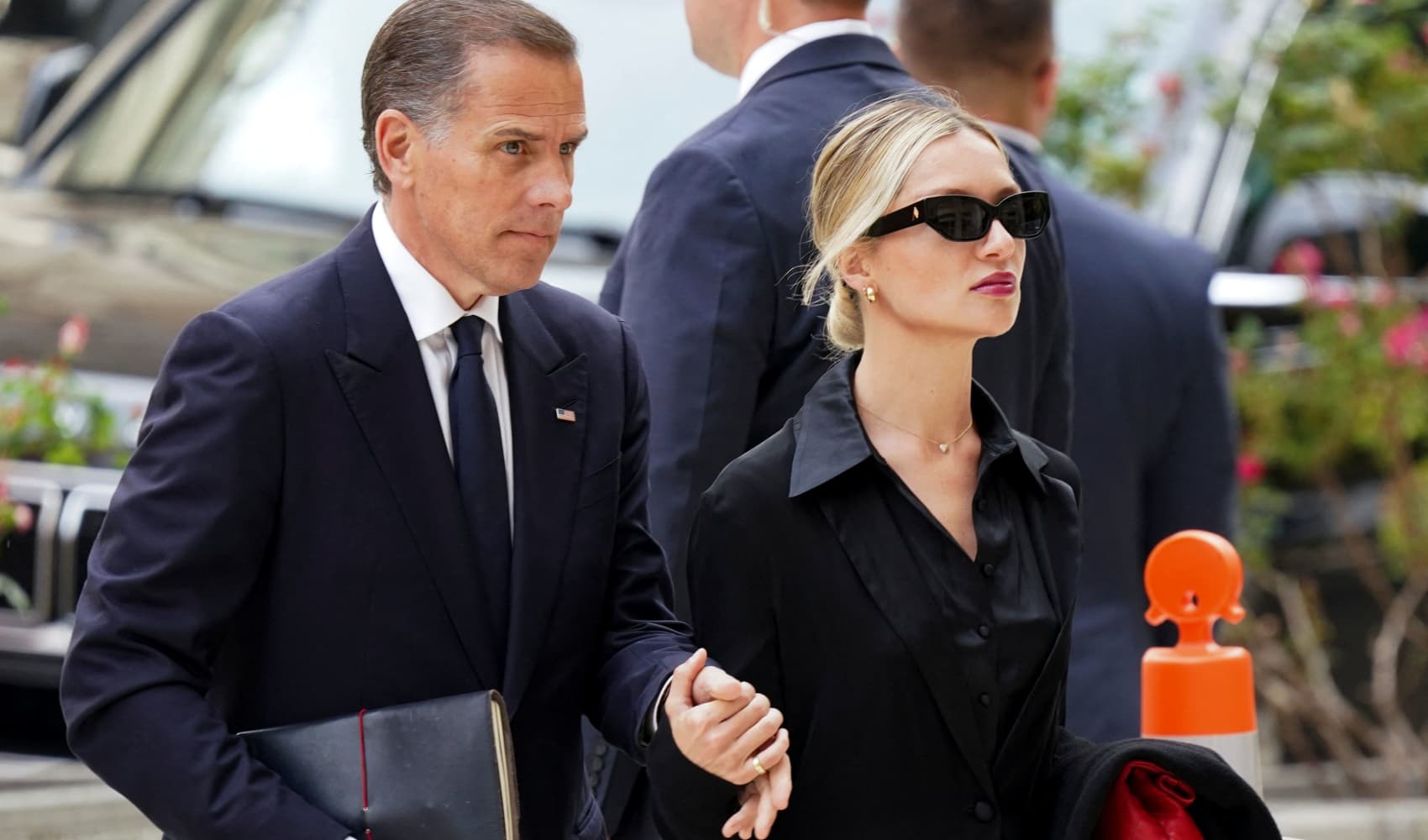
Special counsel David Weiss’ office in a Wednesday filing referred to evidence it intends to introduce at trial purportedly showing that Hunter Biden was compensated by a Romanian businessman who was attempting to influence U.S. policy and end a local investigation of him in Romania.
The prosecution will present evidence at trial that the president’s son “received compensation from a foreign principal who was attempting to influence U.S. policy and public opinion and cause the United States to investigate the Romanian investigation” of the businessman, senior assistant special counsel Derek Hines wrote in Wednesday’s filing.
The additional details about Biden's involvement with the Romanian businessman came in a filing from the prosecution urging the court to deny Biden’s request to omit certain evidence that his attorneys view as unfairly prejudicial in his federal tax case which includes allegations that he failed to pay taxes, failed to file, evaded an assessment and filed a fraudulent form.
Get top local stories in San Diego delivered to you every morning. Sign up for NBC San Diego's News Headlines newsletter.
An attorney for Biden did not immediately respond to a request for comment on Wednesday night.
Prosecutors previously alleged in their indictment that between November 2015 and May 2017, Biden received a third of roughly $3.1 million in compensation related to an oral agreement to help the businessman, who is referred to as “G.P.” in the filings, to contest bribery charges he was facing in Romania.
Prosecutors said that a business associate, who is not named in the filing, would testify at trial about the Romanian businessman’s alleged efforts to retain them and another associate to attempt to press federal agencies to open an investigation, in an effort to end Romania’s criminal investigation of him.
Prosecutors don't intend to introduce evidence in the case of "direct compensation from a foreign state or evidence that the defendant received compensation for actions taken by his father that impacted national or international politics," Hines wrote.
He did argue, however, that the pay structure and details about Biden's work were relevant to their case.
"Moreover, the evidence of what the defendant agreed to do and did do for G.P. demonstrates the defendant’s state of mind and intent during the relevant tax years charged in the indictment," Hines wrote.
"It is also evidence that the defendant’s actions do not reflect someone with a diminished capacity, given that he agreed to attempt to influence U.S. public policy and receive millions of dollars pursuant to an oral agreement" with his associate as part of a plan "that concealed the true nature of the work," he added.
Biden's trial is scheduled begin next month.
This story first appeared on NBCNews.com. More from NBC News:



